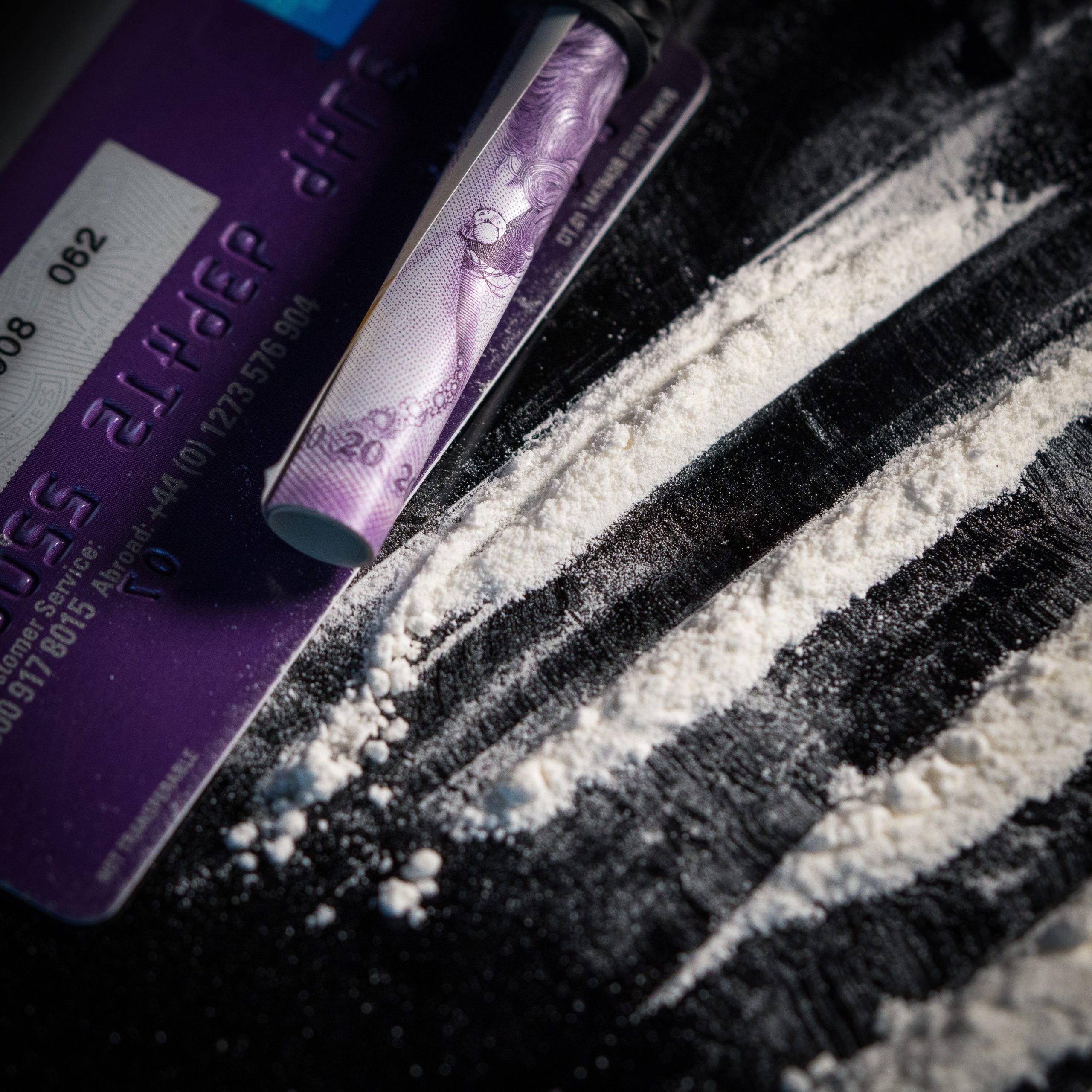
Addiction is a worldwide issue, and the way out of it is not always easy. Cold turkey is an approach that some people use to quit a substance, i.e., alcohol, tobacco, or drugs. But what is cold turkey? It is the abrupt cessation of an addictive substance, without tapering off.
It would appear that this is a quick fix, but everyone should be aware of what this procedure entails in terms of potential repercussions, withdrawal effects, and risks.
In this article, we will see what the phrase cold turkey means and what to expect during a withdrawal, the risks present with physical dependence, and how important it is to have personal medical supervision for someone who is attempting to stop taking drugs or alcohol.
Skip To
Table of Contents
What is Cold Turkey?
The meaning cold turkey refers to quitting a substance like tobacco products, alcohol, or narcotics without a taper. One can define cold turkey as the concept of abruptly stopping, rather than gradually decreasing the amount and slowly coming off the substance. This is an approach to quitting that occurs quickly, although this is not without some dangers, more so among those who are physically addicted.
It is estimated that the word originated from the goosebumps a person feels when they stop, which resemble the skin of a cold turkey. Is this process always effective and safe to use? Not necessarily. The cold turkey approach can be dangerous, particularly in the case of highly addictive drugs.
Why Do People Quit Cold Turkey?
Cold turkey is the choice of some people who happen to think that it is the quickest option to come out of an addictive substance. They believe that quitting instantly will lower their urge to use. Cold turkey, however, may be very dangerous to those who have become physically dependent on the substance. Vigorous withdrawal symptoms, including life-threatening adverse effects, may follow uncontrolled discontinuation.
You must realize that quitting cold turkey has higher chances of bringing you to a relapse, especially when you have not prepared for how to tackle the challenges of the future. When you or a family member is addicted, it is essential to seek professional assistance.
End the Emotional Pain. Get Your Life Back.
Feeling Depressed, Anxious or Struggling with Mental Health Illness? Get Safe Comfortable Mental Health Dual Diagnosis High-Quality Therapy From Counselors That Care. Begin Your Recovery Now.
Hotline: (509) 348-4077

What Happens When You Go Cold Turkey?
The success of quitting cold turkey mainly lies in the substance that you are quitting, and the level of your addiction. As an illustration, there have been studies that indicate that cold turkey quitting smoking has a greater chance of success compared to slowly quitting. This is not, however, true with all substances. Withdrawal symptoms of opioids, alcohol, or benzodiazepines are significantly more complex and potentially fatal in the case of abrupt abstinence.
Withdrawal: Physical Symptoms
Depending on the substance, physical withdrawal symptoms of cold turkey may differ, although these are some of the most common withdrawal symptoms.
- Vomiting and nausea
- Sweating
- Muscle aches
- Runny nose
- Fatigue
- Shaking
- Difficulty sleeping
- Faster heart rate
- Change in blood pressure
They are usually the worst during the first 72 hours after discontinuation. They can extend to several days and even a few weeks, depending on the substance that results in physical dependence.
In case you are suffering from alcohol withdrawal symptoms or opioid withdrawal symptoms, the symptoms can progress. In severe cases, it may culminate in what is known as delirium tremens (DTs), a life-threatening withdrawal result of alcohol addiction.

Withdrawal: Mental And Emotional Symptoms
Along with the physical effects, emotional and psychological effects may present themselves during the withdrawal of addictive substances. Some of its mental symptoms include the following.
- Anxiety
- Depression
- Irritability
- Working on substance cravings
- Confusion
- Hallucinations
- Paranoia
Such psychological withdrawal symptoms may last days, weeks, or even months, depending on how complex the addiction was. The reason is that, although the physical withdrawal symptoms may eventually go away in a couple of days, the emotional problems may last much longer, impacting mental health.
Get Help. Get Better. Get Your Life Back.
Searching for Accredited Dual Diagnosis Mental Health Centers Near You?
Even if therapy failed previously, or are in the middle of a difficult crisis, we stand ready to support you. Our trusted behavioral health specialists will not give up on you. When you feel ready or just want someone to speak to about counseling alternatives to change your life call us. Even if we cannot assist you, we will lead you to wherever you can get support. There is no obligation. Call our hotline today.
FREE 24/7 Dual Diagnosis Mental Health Services HotlineIs Cold Turkey Safe?
Whether it is safe to quit cold turkey or not depends very much on the substance one is quitting and their physical dependence thereon. To others, it may be safe to give up on tobacco or even alcohol with no medical supervision. But opioids, benzodiazepines, or any other highly addictive drug, quitting cold turkey may lead to serious health complications, such as seizures, cardiovascular diseases, and even death.
The most reasonable alternative to such cases is to detox in a medical setting monitored by health specialists with the ability to control the withdrawal process and medications to alleviate the symptoms.
The Dangers of Cold Turkey
The most significant dangers of cold turkey without professional assistance are:
- Seizures
- Heart arrhythmias
- Severe dehydration
- Relapse
- The possibility of overdose in case the individual resumes the usage of the substance upon quitting
Such risks are particularly observed in those who have been long using the substance and have a high degree of physical dependence.
Medical Detox: The Less-Dangerous Alternative
Highly addictive drugs such as heroin should only be stopped medically using medical detox. Within the framework of a medically assisted detoxification, the medical personnel will be able to keep track of your withdrawal symptoms, alleviate the pain, and even administer the medication that would help lessen cravings and help avoid relapse.
Usually, opioid detox programs offer medications such as methadone, buprenorphine, or naltrexone that are administered to minimize the intensity of the symptoms and make the recovery process as safe as possible.
Detox Therapeutic Support
Besides medical care, there is behavioral treatment therapy, as well as counseling, during detox and recovery. These treatments can aid the person in working out the causes of their addiction and finding some solutions to avoid relapse. Several treatment facilities, including We Level Up Washington, provide inpatient detox program options where a person will be under full-time medical care and assistance during detox.
Comfortable Facilities & Amenities
High-Quality Mental Health Services & Behaviroal Health Substance Abuse Treatment
Rehab Centers TourRenowned Mental Health Centers. Serene Private Facilities. Inpatient Rehab Programs Vary.
Mental Health Helpline: (509) 348-4077Proven recovery success experience, backed by a Team w/ History of:
15+
Years of Unified Experience
100s
5-Star Reviews Across Our Centers
10K
Recovery Success Stories Across Our Network
- Low Patient to Therapist Ratio
- Comprehensive Dual-Diagnosis Treatment
- Complimentary Family & Alumni Programs
- Coaching, Recovery & Development Events
- Comfortable Onsite Medical Detox Center
Cocaine, Alcohol, and Benzo Detox
Depending on the substance, detoxification takes different lengths of time to complete.
- Cocaine Detox: Cocaine withdrawals are primarily mental, where the symptoms include fatigue, anxiety, and depression. Some physical symptoms may be present, such as muscle aches and tremors.
- Alcohol Detox: Alcohol withdrawal is life-threatening. Seizures, delirium tremens, and high blood pressure can occur as symptoms. When one wishes to detoxify, it is advisable to do so under the guidance of a professional.
- Benzo Detox: Benzo withdrawal may result in acute anxiety, panic, and convulsive attacks. Benzos should be withdrawn through a medically managed tapering process.
Where Can I Find Detox?
Select a facility that offers a holistic and medically supervised approach. At We Level Up Washington, our medical detox facilities ensure that the process is handled safely, allowing you to continue with the withdrawal process. We have addiction treatment programs that assist with the withdrawal procedures, and in the process, you are guaranteed to obtain the help you need.
Frequently Asked Questions (FAQs)
-
Where can I find treatment for quitting cold turkey in Spokane Valley, Washington?
At We Level Up Washington, we offer specialized medical detox services so you do not have to quit cold turkey. Our team of experts will always ensure that detox is safe and monitored. Contact us at (509) 348-4077 to know more.
-
Where can I find detox care instead of quitting cold turkey in Coeur d’Alene, Idaho?
Detox services are provided at We Level Up Washington, a conveniently located clinic situated near Coeur d’Alene, Idaho. Our staff is available to support you throughout the detoxification process and help you start your healing journey. Contact us at (509) 348-4077 to know more.
-
What are the advantages of going through professional detox compared to a cold turkey approach?
Professional detox involves medical care, and the primary purpose of this care is to make sure that withdrawal symptoms can be managed safely and that no complications occur. Medical detox can do the same, to decrease the cravings and thus, it becomes more probable not to relapse and become long-term rested.
Conclusion: Why Professional Detox is Important
Cold turkey might sound like an effective method of quitting. Still, it can be quite dangerous, particularly in the case of quitting highly addictive substances such as alcohol, benzodiazepines, or opioids. Medical detox is a more effective and safer approach to the withdrawal process, in which one can initiate the recovery process.
At We Level Up Washington, we provide a friendly and encouraging environment for adults committed to undergoing detoxification. The staff working with us will undergo medical supervision and also receive emotional support to ensure a successful recovery. Contact us to start a new, healthier life, free of the struggle with addiction.
World-class, Accredited, 5-Star Reviewed, Effective Mental Health Dual Diagnosis Programs. Complete Integrated Inpatient Rehab with Free Post Discharge Therapy Planning.
Hotline: (509) 348-4077End the Emotional Pain Rollercoaster. Gain Stability & Happiness Through Recovery Treatment. Start Mental Health Counseling Today. Get Free No-obligation Guidance by Behaviroal Health Specialists Who Understand Mental Health Recovery.
Summary
Call today to speak with our team and learn more about our programs. We Level Up Washington: (509) 348-4077. Your next step starts here.




